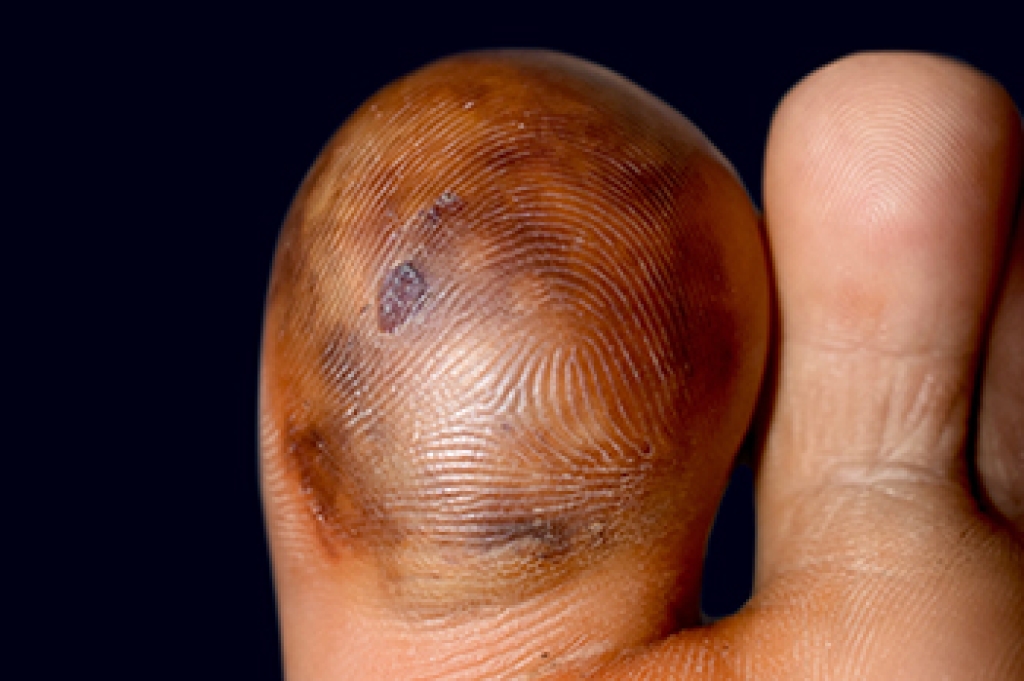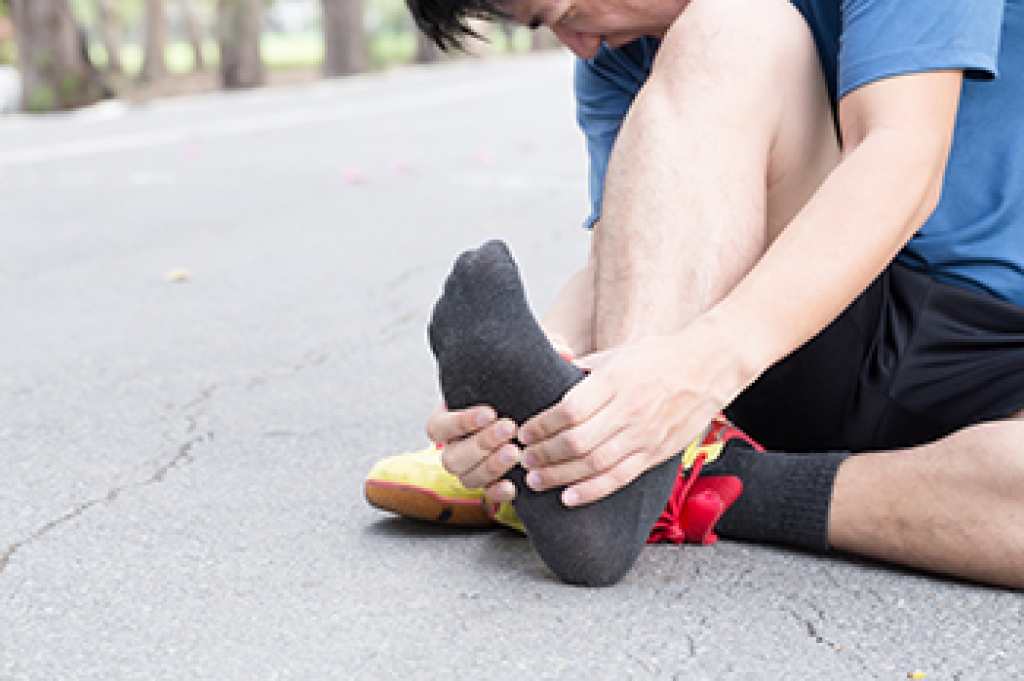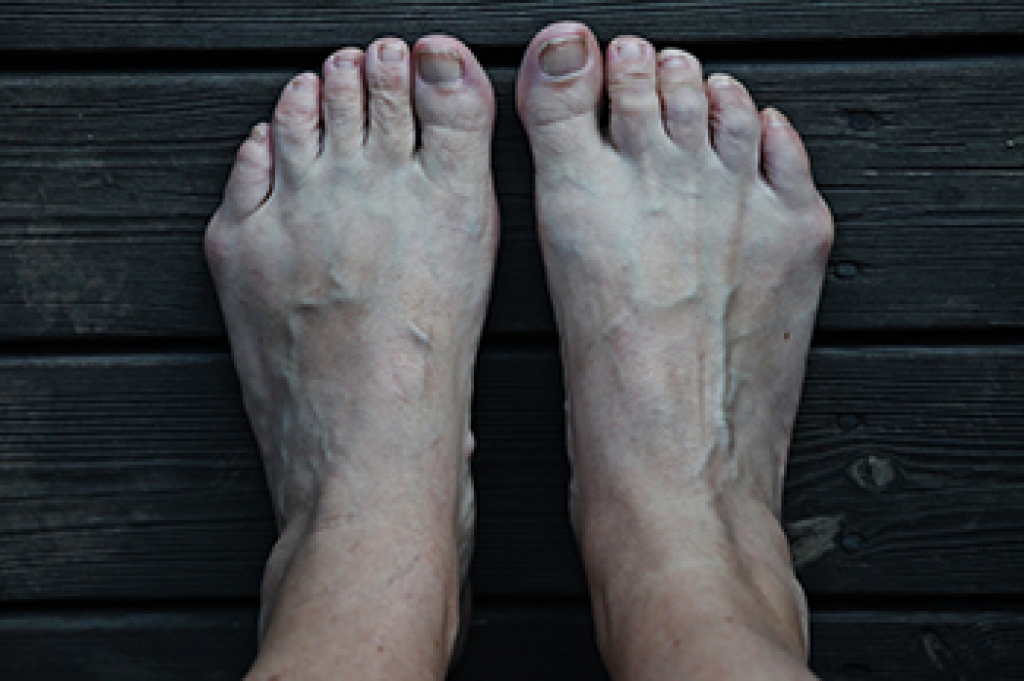
Cellulitis is a bacterial skin infection that affects the deeper layers of the skin and soft tissue, often involving the feet and ankles. It can cause redness, warmth, swelling, and pain, sometimes spreading quickly. In the feet, cellulitis may begin through a cut, blister, or ulcer. It is often confused with gout because both conditions can cause sudden swelling, redness, and significant pain. Gout symptoms typically include intense joint pain, stiffness, and inflammation, often starting in the big toe. Cellulitis symptoms also include tenderness, fever, and skin that appears tight or shiny. Cellulitis is caused by bacteria entering the skin, while gout is caused by uric acid buildup. A podiatrist can diagnose the condition, provide appropriate treatment, and help prevent complications. If you have any of the above symptoms, it is suggested that you promptly consult a podiatrist who can guide you toward appropriate relief and treatment solutions.
Foot Pain
Foot pain can be extremely painful and debilitating. If you have a foot pain, consult with Wendy L. Grossman, DPM from New Jersey. Our doctor will assess your condition and provide you with quality foot and ankle treatment.
Causes
Foot pain is a very broad condition that could be caused by one or more ailments. The most common include:
- Bunions
- Hammertoes
- Plantar Fasciitis
- Bone Spurs
- Corns
- Tarsal Tunnel Syndrome
- Ingrown Toenails
- Arthritis (such as Gout, Rheumatoid, and Osteoarthritis)
- Flat Feet
- Injury (from stress fractures, broken toe, foot, ankle, Achilles tendon ruptures, and sprains)
- And more
Diagnosis
To figure out the cause of foot pain, podiatrists utilize several different methods. This can range from simple visual inspections and sensation tests to X-rays and MRI scans. Prior medical history, family medical history, and any recent physical traumatic events will all be taken into consideration for a proper diagnosis.
Treatment
Treatment depends upon the cause of the foot pain. Whether it is resting, staying off the foot, or having surgery; podiatrists have a number of treatment options available for foot pain.
If you have any questions, please feel free to contact our office located in Bloomfield, NJ . We offer the newest diagnostic and treatment technologies for all your foot care needs.




